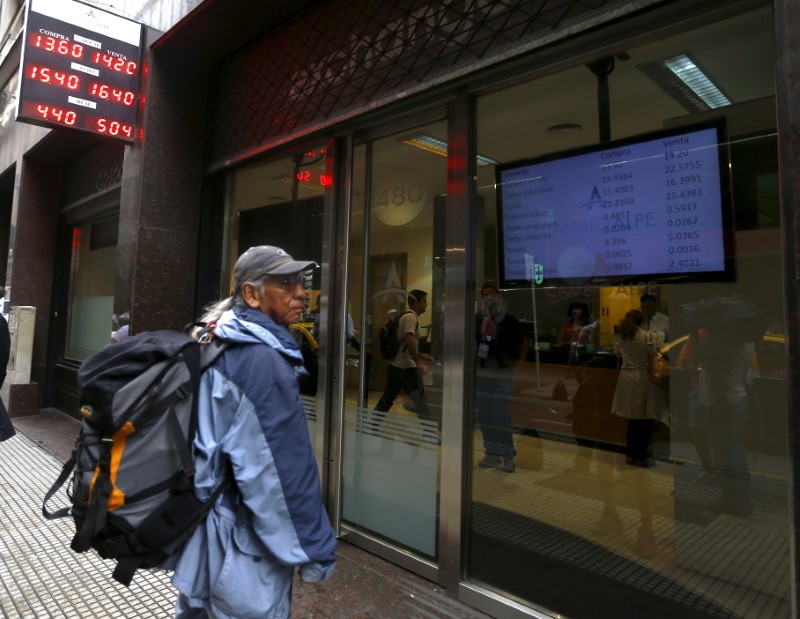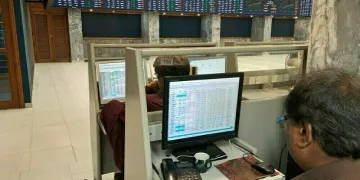 © Reuters. Pedestrian looks at currency exchange rates board at a money exchange in Buenos Aires’ financial district
© Reuters. Pedestrian looks at currency exchange rates board at a money exchange in Buenos Aires’ financial districtBy Jorge Otaola
BUENOS AIRES (Reuters) – Argentina is seeking a financing deal with the International Monetary fund to address recent market volatility punctuated by the local peso plumbing new lows and the central bank jacking interest rates up to 40 percent, the president said on Tuesday.
“Just a few minutes ago I spoke with (IMF) Director Christine Lagarde, and she confirmed we would start working on an agreement today,” Macri said in an address to the nation.
The move was remarkable in that many people in the country still blame the IMF for the policies that led to a financial and economic meltdown in 2001/02 that hurled millions of middle class Argentines into poverty.
Argentine markets have been buffeted wildly over the last two weeks by local policy uncertainty and regional factors. Other currencies in Latin America also weakened as risk-averse investors dumped emerging market assets.
“This will allow us to strengthen our program of growth and development, giving us greater support to face this new global scenario and avoid crises like the ones we have had in our history,” Macri said in defense of his decision to reach out to the IMF.
The local stock market reacted positively to Macri’s remarks. The Merval index, which started the day 5.3 percent lower, cut its losses to 1.6 percent.
The recently volatile local peso currency was down 1.92 percent at 22.4 per U.S. dollar after Macri spoke. Earlier in the day, it had slumped 6.5 percent to a new all-time low at 23.5 to the greenback.
“An IMF line of credit is the least expensive option for growth in Argentina. It will help lower country risk,” Miguel Kiguel, a former Argentine finance secretary who runs local consultancy Econviews, said in a post on Twitter.
Macri was elected in late 2015 on an investment-friendly platform following eight years of populist rule under his free-spending predecessor Cristina Fernandez.
He has reduced utility subsidies, an unpopular move that increased water and heating bills for average Argentines already beleaguered by high inflation.
Last week, the peso hit a then-all-time low of 23 per greenback, prompting the government to announce additional fiscal belt tightening and the central bank to hike its key interest rate to 40 percent on Friday.
Fusion Media or anyone involved with Fusion Media will not accept any liability for loss or damage as a result of reliance on the information including data, quotes, charts and buy/sell signals contained within this website. Please be fully informed regarding the risks and costs associated with trading the financial markets, it is one of the riskiest investment forms possible.
Source: Investing.com




























